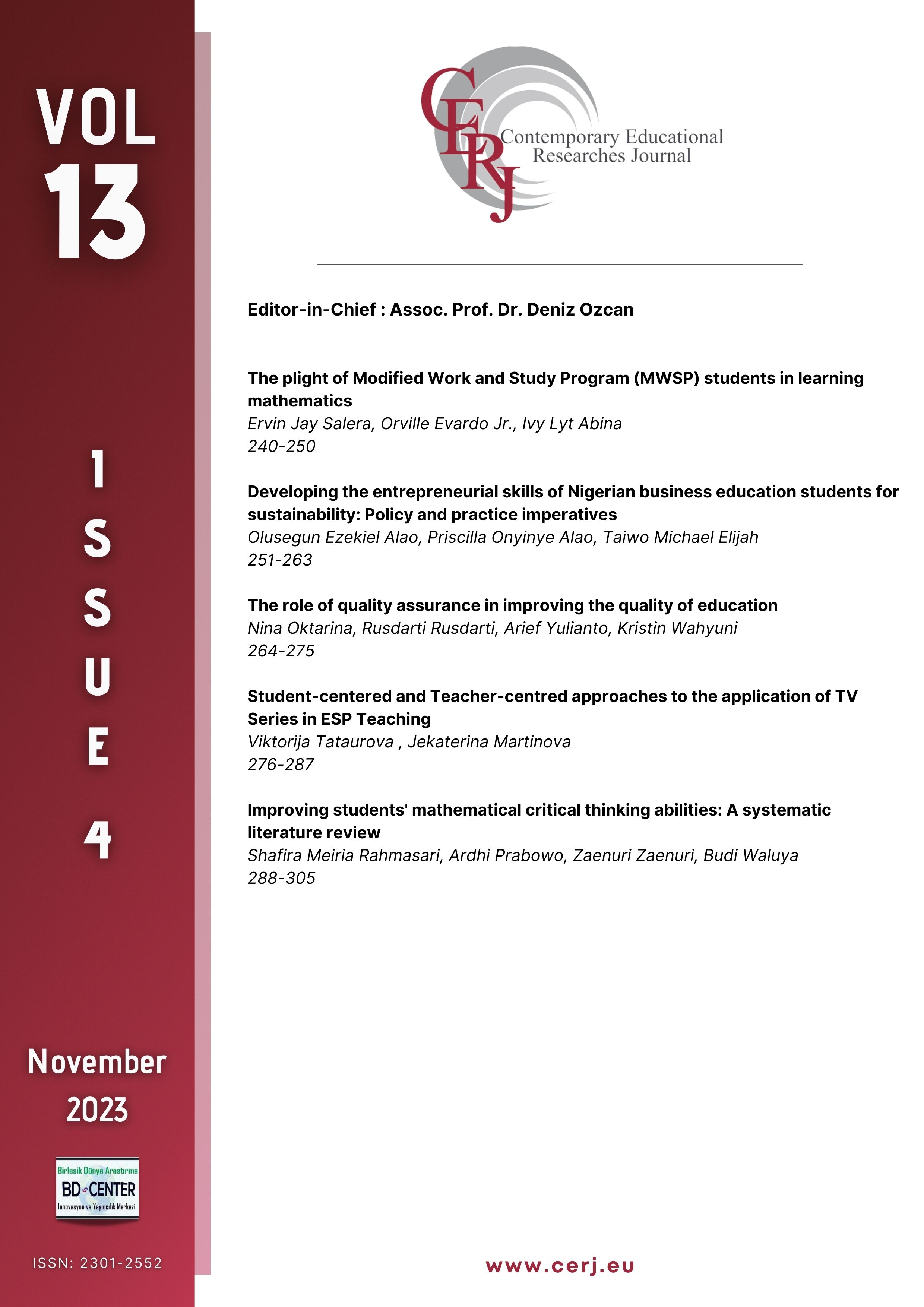The plight of Modified Work and Study Program (MWSP) students in learning mathematics
Main Article Content
Abstract
The Philippine educational system established alternative delivery modes of education, such as the Modified Work and Study Program, to eradicate student dropout incidence. This phenomenological study aims to probe the challenges and explore the coping mechanism of MWSP students in studying mathematics. The study was conducted at a public high school offering the program. Six students were chosen to participate in the study. Focus group discussion was utilized for the data gathering of the study. Results showed that mediocrity of resources and conspicuous learning environment were the leading challenges that MWSP students encounter. Moreover, the coping mechanisms include good classroom management, utilization of concrete examples, time scheduling, steward support, motivational encouragement, and recreational and body relaxation. It is recommended that MWSP mathematics teachers integrate innovative strategies, provide more concrete contextualized examples, intensify the development of learning kits, and reinforce teaching and learning through supplementary materials.
Keywords: Mathematics Learning; Modified Work and Study Program; Phenomenology
Downloads
Article Details

This work is licensed under a Creative Commons Attribution-NonCommercial-NoDerivatives 4.0 International License.
Authors who publish with this journal agree to the following terms:
- Authors retain copyright and grant the journal right of first publication with the work simultaneously licensed under a Creative Commons Attribution License that allows others to share the work with an acknowledgement of the work's authorship and initial publication in this journal.
- Authors are able to enter into separate, additional contractual arrangements for the non-exclusive distribution of the journal's published version of the work (e.g., post it to an institutional repository or publish it in a book), with an acknowledgement of its initial publication in this journal.
- Authors are permitted and encouraged to post their work online (e.g., in institutional repositories or on their website) prior to and during the submission process, as it can lead to productive exchanges, as well as earlier and greater citation of published work (See The Effect of Open Access).
